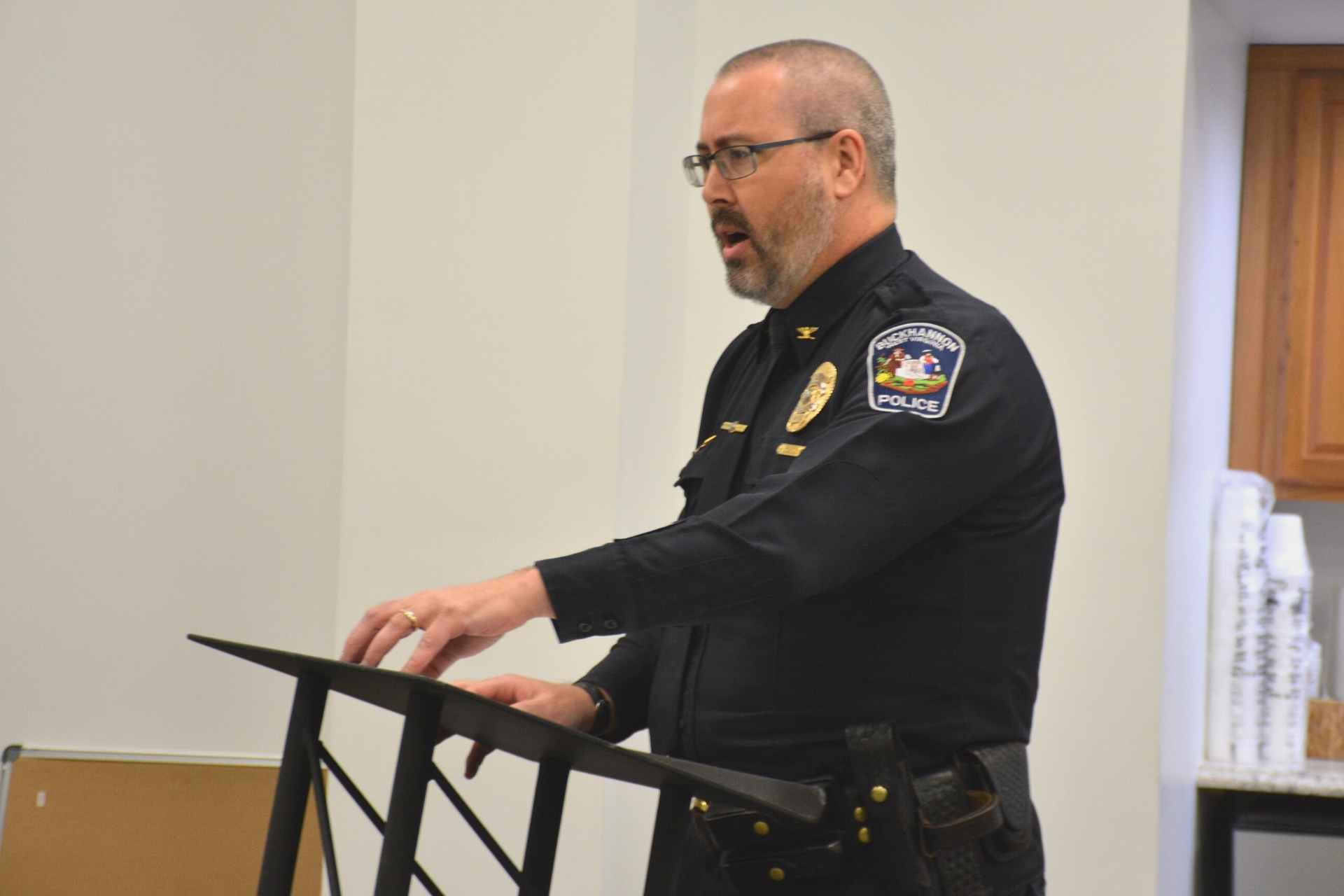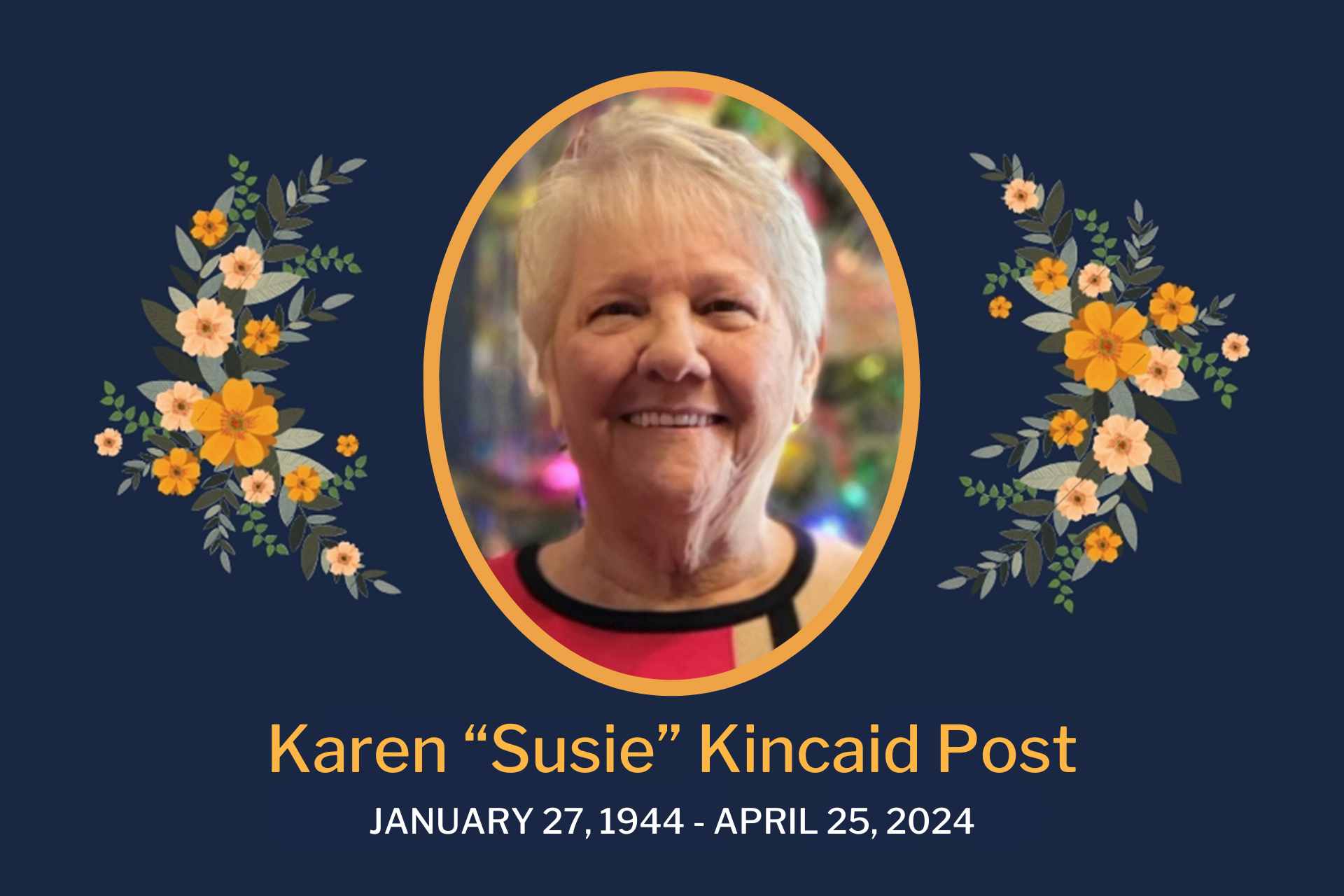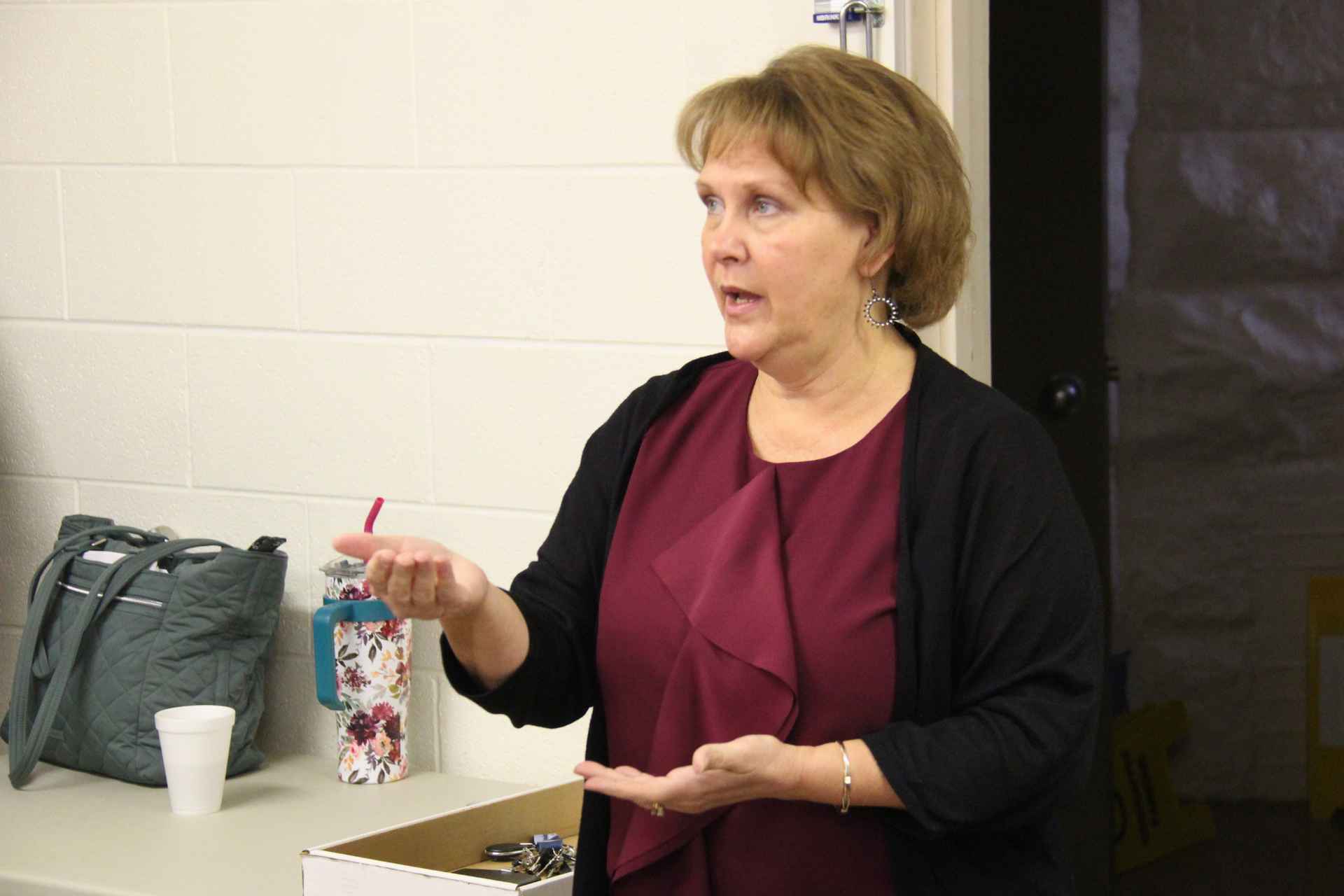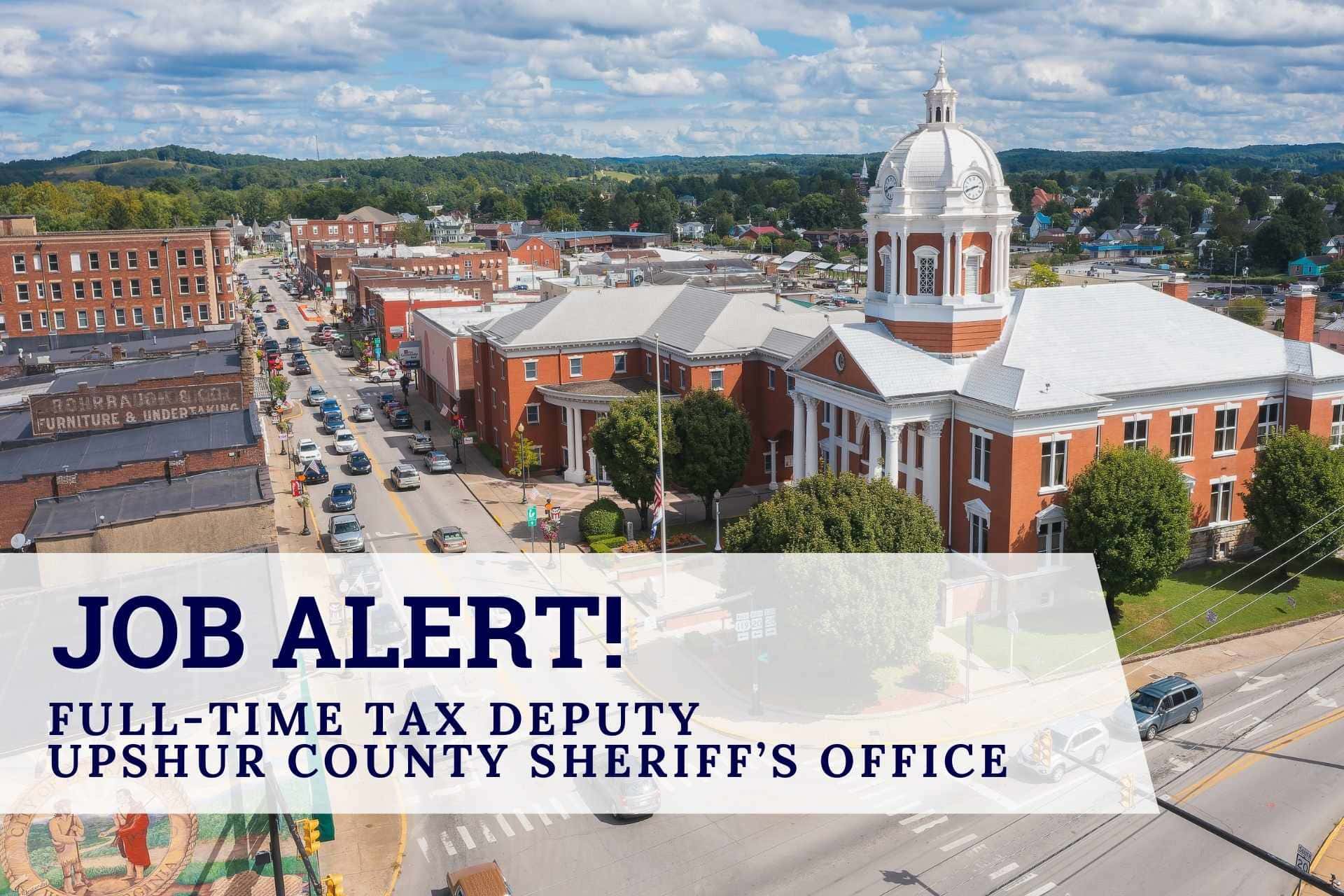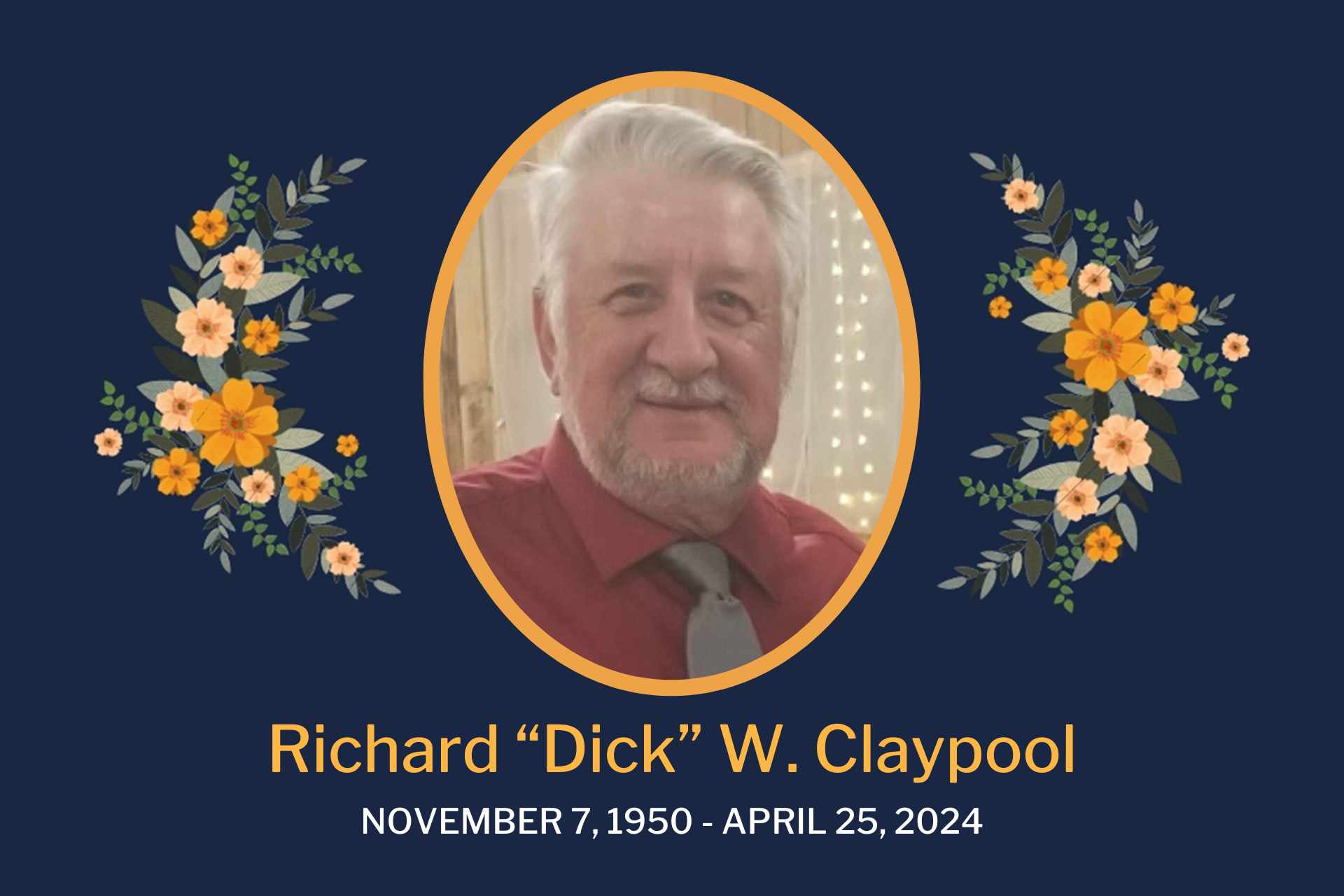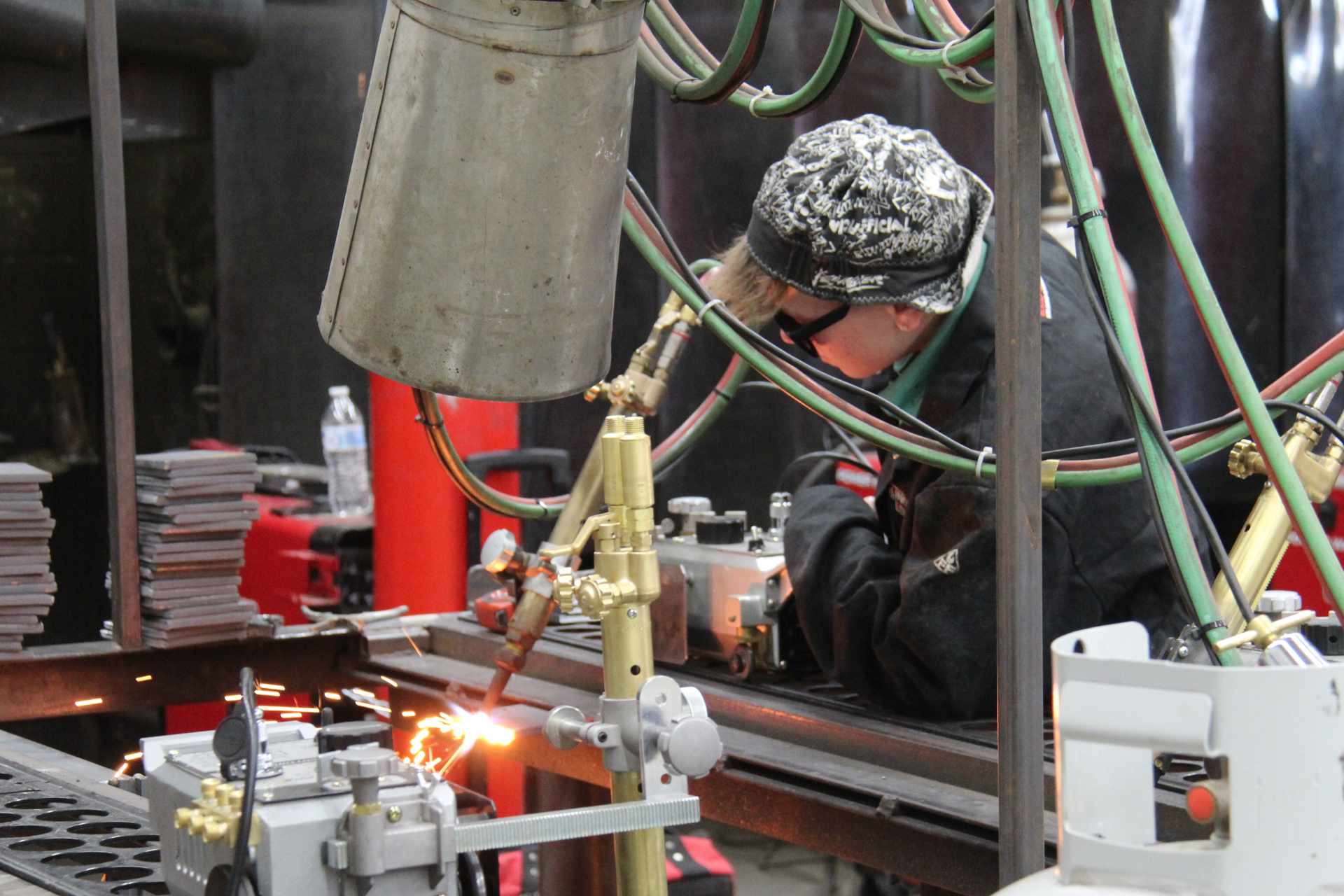BUCKHANNON – In a first-of-its-kind collaboration, the Buckhannon Police Department will partner with First Choice Services — an organization that connects West Virginians battling emotional/behavioral health issues, addictions and more — to the help they need through the establishment of a peer recovery support specialist position within the BPD.
At its Jan. 18 meeting, Buckhannon City Council signed off on a memorandum of understanding between the city police department and the Charleston, W.Va.-based organization First Choice Services, Inc., which operates and links people to a slew of state helplines, including the Suicide Prevention Lifeline.
Lata Menon, CEO of First Choice Services, joined city council’s Thursday meeting virtually to discuss establishing a state grant-funded peer recovery support specialist position within the police department. The person would work alongside officers when they encounter individuals struggling with homelessness, addictions, mental health conditions and other issues usually handled by social services organizations.
According to the MOU, the law enforcement embedded peer recovery support specialist position will assist the BPD “by supporting the needs of its residents as determined by Chief (Matt) Gregory and improving outcomes for those the Buckhannon Police Department encourage who are determined to be a candidate for diversion/deflection.”
At Thursday’s meeting, Menon said the position was grant-funded.
“Through a recent grant that we were awarded from the West Virginia Bureau of Behavioral Health, we have a unique opportunity to place six such peers who are in long-term recovery within law enforcement agencies throughout the state,” Menon said.
The peer recovery support specialist would assist the city police when encountering people who might be served better by social services organizations.
“[The purpose is] to better support law enforcement officers in their efforts to ensure that those they encounter in the community who are better served with behavioral health treatment or treatment for addiction or even for issues of homelessness are able to get the services they need rather than ending up incarcerated or simply ending up not getting services at all because there’s nothing that law enforcement is equipped to be able to do in that space,” she explained.
Menon said First Choice Services is also working with the Wheeling and Charleston police departments on similar placements of peer recovery support specialists.
According to the MOU, First Choice Services would serve as the peer recovery support specialist’s employer, meaning it would pay their wages and benefits, perform any human resources-related functions, and provide required and requested trainings and professional development opportunities.
The police department would assign tasks and provide supervision and a workspace to the person chosen to fill the position.
Mayor Robbie Skinner emphasized the city would not be paying the person’s wages.
“This would be a position that would be reporting to Matt (Gregory), [the person] would be working in our police department alongside our officers but handling some of the less law enforcement cases, per se, but more of the [cases] involving some social issues to keep our officers and our department on a more well-rounded scope of helping our community from a holistic approach,” Skinner said. “This will not be something the city will have to be responsible for paying for.”
City Recorder Randy Sanders asked if the peer support specialist would be assigned regular office hours, and Menon said their hours could be designed in accordance with when officers typically encounter issues with mental health, substance use disorders/addictions and homelessness.
Police chief Matt Gregory said the hours could be tailored to Buckhannon’s needs.
“This is a very moldable position, which makes it a very unique opportunity to address these types of things that certainly have come to our attention quite frequently in past years, and it is not uncommon to have set hours,” Gregory said.
However, those hours might be set when police officers are more likely to encounter a heightened need for assistance with behavioral/mental health or addiction issues.
Sanders asked about what type of training the PRSS would be required to undergo.
“They would be mandated to go through all of our trainings, which cover a lot of behavioral health issues,” Menon replied. “They also would be a fully certified peer recovery support specialist, which means they have a minimum of two years in long-term recovery from their active addictions.”
“They would have gone through additional training regarding roles and boundaries with general behavioral health diagnoses, how to do referrals, what appropriate treatment avenues are, and things like that,” she added.
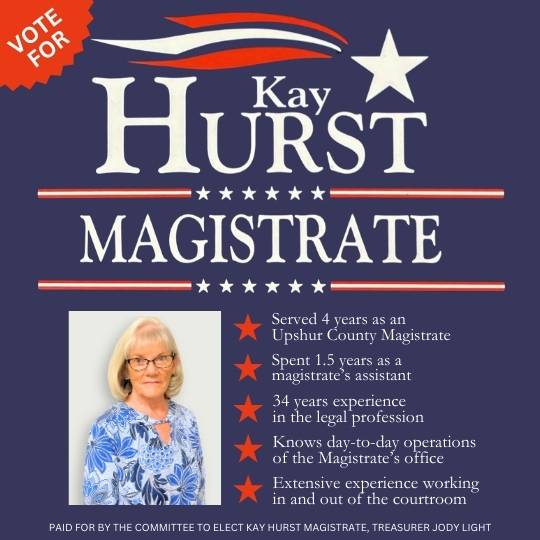
Councilman David Thomas asked a number of questions about the position, including how First Choice Services would measure success and how the peer recovery support specialist would identify people who needed help.
“It’s really based on the individuals who are, in particular, repeat encounters on the street, where we’ve received numerous complaints where they’re either committing minor crimes or non-law-enforcement types of concerns,” Gregory replied.
“We may get multiple complaints about because they’re sitting on a fence all day long, or maybe they’re staggering around the neighborhood, and people ask if we have something we can charge them with,” the police chief explained. “We’ve done that in the past, but as I’ve stated many times before, that in and of itself doesn’t deal with the root cause of the issue, and so, this is just another tool in the toolbox that would identify another avenue of response to these types of issues.”
The PRSS’s first task would be to network with local social services organizations, Gregory said.
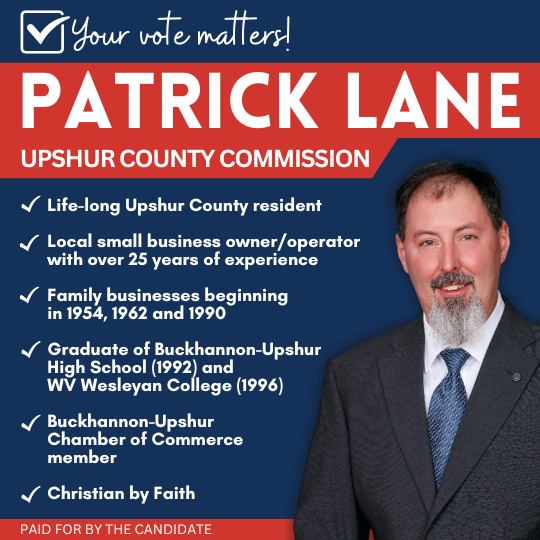
“My vision at the outset, once the person for this position is identified and placed in the department, would be to connect them with various community organizations, such as the Housing and Homeless Coalition or other care providers here in our community, and have the peer recovery support specialist work with them to identify further resources.”
Menon said in 2023, First Choice Services assisted over 200 Upshur County residents.
“Last year, we helped more than 200 residents of Upshur County access affordable health care, treatment for addiction or behavioral health issues, and help with suicidal ideation,” Menon said. “As you might guess, from our second-chance employer status, those who are in recovery are dear to our hearts here. We have seen with our own eyes that people can recover and contribute greatly to the community again.”
Learn more about First Choice Services’ services and helplines here.
